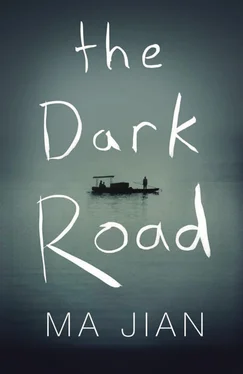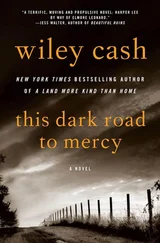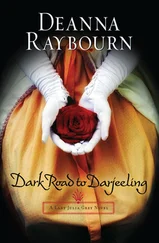‘I want to fight, Kongzi, not only to avenge the abortion of my son, but to ensure the survival of the Kong clan and Chinese family traditions. These are causes for which I’m willing to sacrifice my life. Did you know that in the Cultural Revolution, after the Red Guards smashed the Tomb of Confucius, they dug up the corpses of a seventy-sixth generation descendant, Kong Lingyi, and his wife, and thrashed them with spades? It was a declaration of war against the Chinese nation.’
‘I know. They dug up and destroyed two thousand ancestral graves. Corpses were pulled out, stripped and hung from trees. I agree we must avenge our family honour, but not by launching a rebellion. The time isn’t right. Historically, popular revolts have erupted in times of hardship. But the Party has allowed people to get rich. Who would want to join the revolution now?’
‘What destruction Mao unleashed…’
‘Yes, but Mao’s dead, and faith in Communism is dead. The Party has no ideology to legitimise itself now, so it’s bringing back capitalism and Confucianism to fill the void. Go into any bookshop, and you’ll see that in official publications Confucius is no longer referred to as “Evil Kong, the Second Son”… All right, I’ll help draw up a constitution for your Fertility Freedom Party, but I tell you now, I won’t join any uprising.’ Some of their rice wine has spilt on the mat, filling the cabin with a sweet, heady smell.
‘Look at all the people who’ve signed up: Kong Guo, Scarface, Wang Wu… I’ve got a hundred names already. We’ll hold our first party congress soon and elect a chair. I hope you’ll accept the position of secretary general.’
‘No, count me out. Meili’s going to give birth next month — so I’ll be doing my part to ensure the survival of the Kong clan! But I have three points to make. First: if you do launch a rebellion, you must be aware that you will receive no international backing. America and the UN have given full support to China’s population control policies. Second: if you want to get rid of the One Child Policy, you must get rid of the Communist Party first, and that won’t happen without a military coup. Tens of thousands of protests flare up across China every year, and in the end each one is crushed by the army. So, my third point is: bide your time and focus on building a network of contacts. Then, when a national uprising similar to the 1989 protests breaks out, you’ll be able to take advantage of the chaos and launch your attack.’
Mother walks out of the bamboo hut, leans against a tree beside the creek and pisses into the water. Noticing the lamp still shining in the cabin, she shouts, ‘Kongzi, go to sleep! The sun’s almost up.’
Keywords: Chrysalids, Crow’s.
KEYWORDS: chrysalids, crow’s nest, motherwort, spindly tree, pelvic inflammatory disease.
MEILI HERDS THE ducks up the muddy path that curls through the lychee grove towards the terraced hill. She wanted them to stay on the lower terrace, but the duck at the front catches a scent and climbs a steep track, and the whole flock soon follows behind, shaking their snow-white tails. There are thirty-two of them. The remaining ten are roosting in the hutch or are too sick to come out. Meili wants them to forage for earthworms and snails while she looks for the water chickweed flowers she likes to add to egg soup.
The July sunlight has softened the earth. Steam is rising from the clumps of willows and eucalyptus trees and bags of rubbish scattered over the fallow field. The heat seeps into Meili’s flesh. Inside her belly, the fetus extends its legs and excretes fluids into the amniotic sac. As she crosses the field, her pulse racing and her head dizzy from the heat, she feels as though the ground beneath her feet is supporting her like a strong and dependable man. She sees a peony bush, buries her nose in a pink bloom, and inhales. The subtle, mysterious scent makes her lose her balance. She undoes the lower buttons of her shirt, and, breathing deeply, lowers herself onto the grass. As her pulse returns to a slow, steady pace, a Tang poem drifts into her mind: ‘Idly I sit while osmanthus flowers fall. / Tranquil is the spring night on the deserted hill. / The moon rises, startling the mountain birds. / All night they call out from the ravine.’ Kongzi once copied this poem for her on bamboo paper in graceful ‘grass style’ calligraphy, and she put it in the wooden box containing the jade earrings her grandmother gave her… For an instant, time seems to lose all meaning. She stares at a pink flower in the grass below and tries to remember its name, then looks at the ducks foraging for food in the irrigation ditches, their necks stretching out and shrinking back again. A drake mounts a female duck and waggles its tail as it ejaculates. She saw that pair mate two days ago. As soon as the egg is laid, she’ll have to collect it and place it in the hutch for the duck to incubate. Thinking of the eggs makes Meili’s belly tighten. As she rubs her bamboo herding pole, she remembers Kongzi making love to her on their honeymoon in Beijing, while Teacher Zhou was out at work. The bed had a soft, sprung mattress. He shook her about in a sweaty fervour for hours. By the end, she was drenched and listless, and her groin was scorched and inflamed. For the rest of the honeymoon, the burning between her legs made it painful for her to walk. When she stepped onto Tiananmen Square on their last day, it hurt so much that she had to sit down and rest on the concrete paving stones. As soon as Weiwei gripped her hand on the boat, the memory of that pain came back to her. She hates thinking of Weiwei now, and still hasn’t taken a look at the tortoiseshell glasses she snatched from him… She glances up and sees hanging down from the leaves of a shrub, three grey butterfly chrysalids. She hopes that one day she too will be able to break out of her shell and fly. During these last nine months, she’s barely had a moment to think of her own future. Sharp spikes of motherwort prick into her ankles. On the broad Huai River far away, boats are docked below a petrol station and large cargos are being unloaded. One boat has a triangular flag, indicating it can sail on foreign waters. Last week, Kongzi transported cargos of security doors and glass panels. He was paid thirty-five yuan a day, but after the cost of fuel was deducted, he was left with only twenty. He spent two hundred yuan when Kong Qing visited, taking him out for meals at the village restaurant. Meili was excluded from their secret discussions, but from the little she overheard she gathered they’re planning to set up a company to provide family planning information. Meili asked Kong Qing whether his wife suffered any after-effects from the forced abortion, and he said she contracted a pelvic inflammatory disease which has left her infertile. He said that women subjected to such abortions often develop this disease, and even if they do manage to conceive later, the babies are either miscarried or born with birth defects. He said the government deliberately chooses to perform forced abortions and IUD insertions in primitive places such as village schools, so that women will contract illnesses that will render them barren. Meili is relieved that although she suffered from cramps and heavy bleeding for a while after her abortion, she didn’t develop any serious complications. She runs her hands through the grass, searching for her favourite bitter-tasting wolfberry leaves, and for snails to feed to her ducks. For the first time in months, she feels safe and at peace.
Waterborn, Waterborn, she whispers, looking down at her bulge. Whether you’re a boy or a girl, you’re my flesh and blood, and I will love and protect you. Although the last thing I wanted was another child, now that you’re here, it all seems right. I have everything ready: scissors, antiseptic, muslin sheets, a plastic basin, nappies — the expensive disposable ones. I’ll give birth to you on the boat. You may not know this now, but in this country having a child can be a crime. That’s why we’ve had to hide in this wretched place. Your brother Happiness was about the same size as you are now when he was torn from me… In the centre of a vast field far below stands a frail, spindly tree that no one would notice were it not for the large crow’s nest in its upper branches. Indistinct figures are burning paper offerings on a grave mound in its shade. Meili thinks of her mother and grandmother. When she lived in Nuwa Village, she always longed to leave her family, but now that she’s so far from home, she wishes she could be with them. She’d like to comb her mother’s hair now, or scratch her back for her. She’d like to carry her frail grandmother into the garden and let her sit in the sun, or find a wheelchair and push her along the banks of Dark Water River or up to the temple on Nuwa Mountain. She forgets how many times she went up there on her grandmother’s back, clinging to her neck and bumping up and down as her grandmother struggled up the hundreds of stone stairs and finally stepped over the high threshold of the temple entrance.
Читать дальше












